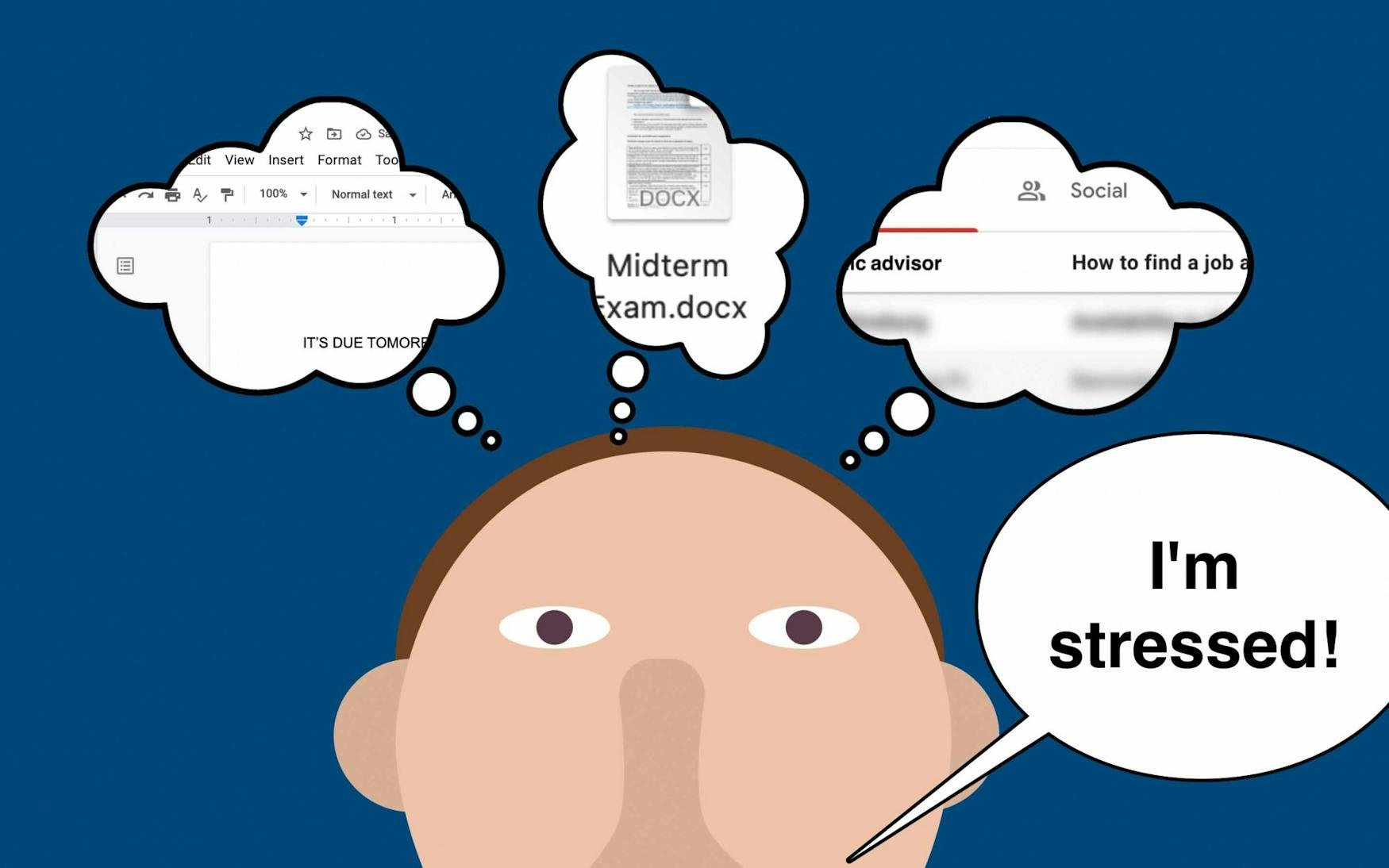Editorial: Students’ mid semester burnout goes beyond the mounting exams and assignments
Midterm season at Brandeis is in full swing, and with that, students are experiencing increased stress levels and plummeting mental health. It would be easy to say that the stress of midterm season is the sole cause of students’ decline in mental health. However, that would be an oversimplification of a decline in mental health that is not only emerging at Brandeis but across other college campuses. According to Samantha Meltzer Body, chair of the department of psychiatry at the University of North Carolina at Chapel Hill, “Campuses are a microcosm of the larger societal problem of worsening mental health during the pandemic.” While the return of in-person classes has brought some return to normalcy, many students do not merely operate within a university setting—students are also employees and caretakers whose responsibilities span beyond their mounting midterm exams and assignments.
For some, the return to in-person classes after four semesters of virtual learning was an opportunity to reconnect with friends and settle back into a more familiar routine. However, for others, returning to campus for in-person classes was yet another anxiety-inducing experience coupled with the trauma and grief of the last year and a half. To make matters worse, the work culture at Brandeis encourages students to pack their schedules, allowing little time for basic necessities such as sleeping, eating three meals a day and exercising.
While students are highly encouraged and motivated to pursue several majors and minors and maintain a bustling social life, this culture does not allow students the time and space to grapple with their deteriorating emotional and mental well-being. If faced with the choice to get a full night’s sleep or pull an all-nighter cramming for an exam or completing assignments, students would choose the latter even if their health or grades suffer as a result. Within this microcosmic society, Brandeis students predicate their worth on their grades and stuffed resumes. We cannot simply tell students that they are worth more than numbers and words on pieces of paper because while this can be understood in a logical sense, students often do not feel this.
As students, members of this editorial board have not only observed the aforementioned work culture but have experienced it firsthand. Words of advice will only go so far, as we too are at different stages of juggling our mental and emotional well-being alongside the mounting responsibilities we face as students and simply as human beings.
We live in a society that privileges productivity over its workers, and it is difficult to undo this psychological warfare. In an Atlantic interview, the founder of the Nap Ministry Tricia Hersey says, “To think that in this day and age, there’s no time for you to at least take 10 minutes to reclaim rest and daydream and shut your eyes or debrief for a little bit longer before you go to shower, that is not true. That’s all false and has been told to us by systems that don’t see us as divine.”
While this board restrains from doling out advice to students, we write this editorial to those who feel alone in their constant balancing act—those who beat themselves up for not having it all together. No one has it all together, and we don’t live in a society that allows individuals to do so.



Please note All comments are eligible for publication in The Justice.